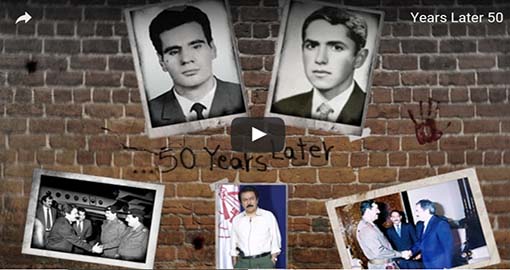Synopsis
Mojahedin_Khalq_Rajavi_Cult_50_YearsIn 1965, a number of university students in Iran decided to take up arms against the dictatorship of Mohammad Reza Shah, a proxy-war against US imperialism.
To that end, they founded the “Mojahedin-e-Khalq Organization,” also called “MEK” or “MKO.” It was an organization established based on Islamic ideology and tilted toward Marxist armed struggle. The security apparatus of Iran, namely SAVAK (Organization of Intelligence and National Security) decided to nip the organization in the bud: most of its members were arrested, tortured, and executed. In the meantime, Taghi Shahram, among the arrested, brushed aside the Islamic ideology to become a true follower of Marxism. He managed to escape from prison and changed officially the organization’s ideology from Islam to Marxism. But not all the key members were all for it. Majid Sharif Vaghefi and Morteza Samadiyeh Labbaf were among the founding members of the organization who opposed the ideological change. Their opposition, however, cost them their lives. Press TV’s investigative documentary, “50 Years Later,” recounts what exactly happened 50 years ago to Majid Sharif Vaghefi and Morteza Samadiyeh Labbaf through conducting interviews with Majid Sharif Vaghefi’s family members. In the documentary, we see how, four decades after the assassination of these two members of the organization, the MKO infighting makes its way onto the Iranian silver screen. “Cyanide” is a movie which deals with the ideological U-turn in the MKO. Behrouz Shoeibi, the director of the film, talks about his underlying philosophies which led to the making of the film. Moreover, other different individuals including film critiques and an ex-member of MKO pass their comments and judgments in this regard. Throughout the documentary, we witness different scenes of the film which have been used to portray the past events in lieu of using reconstruction footage.


